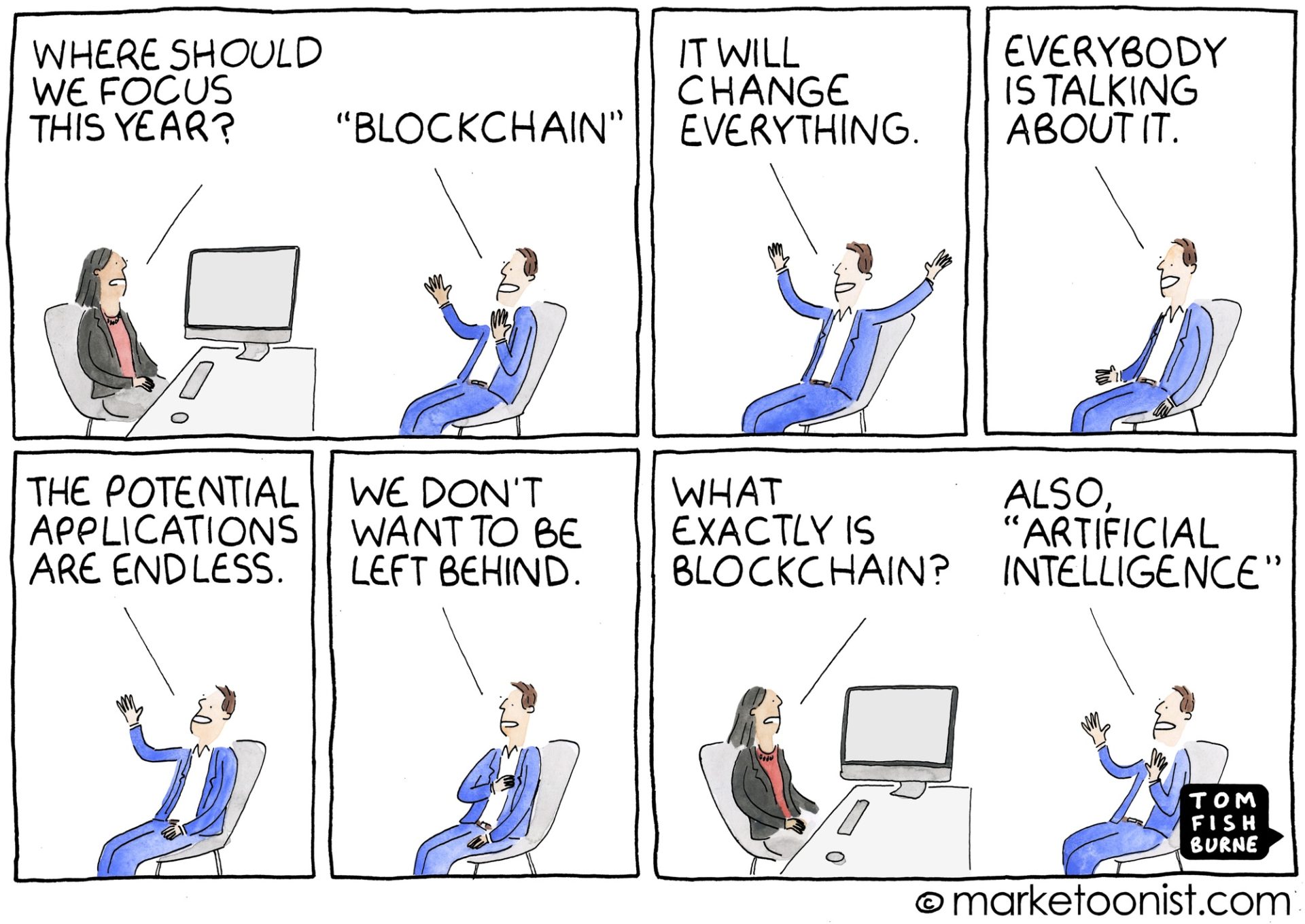
In the first months of 2018, I’ve attended a lot of events, and they all had one thing in common. At the Consumer Electronics Show in Las Vegas, World Economic Forum in Davos, Mobile World Congress in Barcelona, back in Vegas for the HIMSS conference, The Montgomery Summit in Los Angeles, and finally SXSW in Austin, I’ve gotten to spend time with smart business leaders, academics, investors, technologists, creatives, etc.
In all of my travels, no conversation was complete without the mention of both artificial intelligence AND blockchain. While some pontificated about what these trends meant to their industry or the future of work, they were more often wondering how to navigate the hype. Distributed ledger, computer vision, cryptocurrency, machine learning, identity management, and neural networks — the jargon itself is overwhelming. But they’d been hearing predictions from the tech media, platform providers, and management consultants that led them to believe that they were doomed if they haven’t already developed a strategy for AI and blockchain.
But is that really the case? Like their predecessor technologies, I’m sure these will have great impact. But it sure seems like the industry is trying to accelerate large-scale adoption, rather than trying to find use cases that will uniquely leverage these genuinely complex and multifaceted technological advancements.
My advice? Go back to the basics. Start with the problem, not the solution. Artificial intelligence and/or blockchain could help, but don’t assume they are your silver bullet.
Josh Kampel is Techonomy’s president.
Confused by Artificial Intelligence and Blockchain? You’re Not Alone
In the first months of 2018, I’ve attended a lot of events, and they all had one thing in common.















